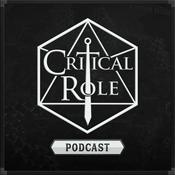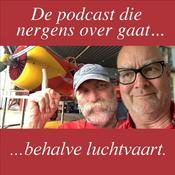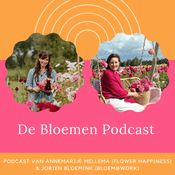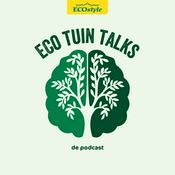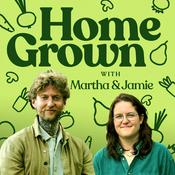308 afleveringen
- Alice Sainsbury is a designer, writer and speaker who in 2015 was diagnosed with an acute neurological condition called transverse myelitis.
Since then, she’s been on a mission to break down the barriers that stop people with disabilities participating in the outdoor sports and activities that so many of us take for granted.
In this episode, we explore the reality of life for a disabled person in 2026, and the systemic, societal difficulties disabled people face when it comes to participating in outdoor sports and activities.
We also discuss Alice’s own story, as well as her latest initiative UN[PARA]LD, which launches at the Milano-Cortina Paralympics with the aim exposing a hidden barrier in elite sport: the incredible fact that many Paralympic athletes are still required to adapt, alter, or retrofit their own outdoor and alpine clothing in order to train and compete.
This is one of the most illuminating and intellectually-stimulating conversations I can remember hosting on the podcast. I learned a lot, and I think you will too.
To find out more about Alice’s work, and the UN[PARA]LD initiative, click here.
--
This week’s codes to use for some big old savings:
LOOKINGSIDEWAYS for HUGE savings on ski and snowboard hire with Intersport this winter.
LOOKINGSIDEWAYS10 for 10% off any order from Finisterre
LOOKINGSIDEWAYSXDB for 15% off anything from Db
LOOKINGSIDEWAYS2025 for 15% off any Albion purchase
LOOKINGSIDEWAYS for a whopping 20% off anything from Goodrays.
LOOKINGSIDEWAYS for 15% off any Stance order
--
To find out more about what I do, you can sign up as a subscriber to my Substack newsletter here. There's a brilliant community and much more than just the podcasts.
This is a public episode. If you'd like to discuss this with other subscribers or get access to bonus episodes, visit www.wearelookingsideways.com/subscribe - Oscar-winner, snowboarder, and one of the most influential documentary filmmakers working today, Orlando von Einsiedel makes his return to the show, nearly eight years after his first appearance.
In that time, films such as Virunga, The White Helmets and The Lost Children have set a new standard in gripping, immersive documentary story-telling.
Recorded live at the 2025 Kendal Mountain Festival in front of a sold out audience, this wide-ranging conversation centres on Orlando’s latest film The Cycle of Love, which is currently cleaning up on the festival circuit.
It also a rare, honest insight into the reality of life at the sharp end of documentary filmmaking, even when you appear to have achieved the success everybody craves.
We dig into Orlando’s creative process, the state of the documentary landscape, and the somewhat dire financial realities of getting ambitious projects off the ground, even for an artist of Orlando’s calibre.
If you enjoyed my recent episode with Lucy Walker, or are interested in the real, often precarious mechanics of a creative career, this one’s for you.
--
This week’s codes to use for some big old savings:
LOOKINGSIDEWAYS for HUGE savings on ski and snowboard hire with Intersport this winter.
LOOKINGSIDEWAYS10 for 10% off any order from Finisterre
LOOKINGSIDEWAYSXDB for 15% off anything from Db
LOOKINGSIDEWAYS2025 for 15% off any Albion purchase
LOOKINGSIDEWAYS for a whopping 20% off anything from Goodrays.
LOOKINGSIDEWAYS for 15% off any Stance order
--
To find out more about what I do, you can sign up as a subscriber to my Substack newsletter here. There's a brilliant community and much more than just the podcasts.
This is a public episode. If you'd like to discuss this with other subscribers or get access to bonus episodes, visit www.wearelookingsideways.com/subscribe - If you ask me, this week’s guest Axel Pauporte is one of the most influential snowboarders of the 1990s and 2000s.
Even if you don’t know his name, you’re living in a snowboarding culture that he helped shape. Especially if you’re a European snowboarder.
To qualify this rather bold claim, it helps to remember how singular an outlier Axel truly was.
Back in the early 90s, professional snowboarders from mainland Europe were a genuine rarity. Professional snowboarders from flat Northern European countries such as the Netherlands, the UK or Belgium, where Axel was brought up? Legitimate trailblazing pioneers.
All of which makes Axel’s career path especially legendary. Here was a rider who started snowboarding late - and on dry slope to boot.
And who, by the end of a storied twenty-year career, was universally regarded as one of snowboarding’s greatest ever freeriders, and had demonstrated that European riders could lead the way in a proving ground like Alaska alongside peers such as Travis Rice, Jonaven Moore and Jeremy Jones.
And the story of how Axel made this happen is as unlikely as it is instructive. This isn’t your standard pro snowboarder origin story.
Here we have an outsider, both literally and figuratively, who was driven by a potent emotional combination: his own insecurities, a Stakhanovite work ethic, and a ferocious desire to use snowboarding a way of finding a sense of belonging.
In Axel’s case, that ultimately led him to AK, and the pursuit of risks that today make him pause and wonder, as we discussed.
As you might be gathering, this is a very honest conversation that covers belonging, identity, and the psychology and selfishness of risk; as well as the reckoning that comes to us all once the body and mind begins to fade, and other priorities take precedence.
Big thanks to Axel and my friend Dave Mailman for the help with this one.
--
This week’s codes to use for some big old savings:
LOOKINGSIDEWAYS for HUGE savings on ski and snowboard hire with Intersport this winter.
LOOKINGSIDEWAYS10 for 10% off any order from Finisterre
LOOKINGSIDEWAYSXDB for 15% off anything from Db
LOOKINGSIDEWAYS2025 for 15% off any Albion purchase
LOOKINGSIDEWAYS for a whopping 20% off anything from Goodrays.
LOOKINGSIDEWAYS for 15% off any Stance order
--
To find out more about what I do, you can sign up as a subscriber to my Substack newsletter here. There's a brilliant community and much more than just the podcasts.
This is a public episode. If you'd like to discuss this with other subscribers or get access to bonus episodes, visit www.wearelookingsideways.com/subscribe - It’s December 24th. Which must means it’s time for my much-loved Festive Special with close friends-of-the-show Tim Warwood and Adam Gendle!
This might well be the conversation I look forward to the most each year. If you’re new to the show, some background: I go back thirty years with these boys, who I first met through the very close British snowboarding community we’re so lucky to be an integral part of.
Eight years ago, we got together at Christmas to record the first Looking Sideways special, and it’s since become a tradition during which we get together to catch up, and generally glory in the closeness that comes when you’ve been friends for as long as the three of us have.
And this is a lesson I’ve especially learned this year: that as you get older, the fundamental element of trust that exists between you and your oldest pals provides a level of increasingly-needed comfort.
It’s one of the best parts of getting old. Especially as it’s so difficult to see the people you love. So as the years pass, this episode becomes ever more important and cathartic to me.
As ever, it’s a freewheeling catch up that saw us cover our usual topics - our annual Yuletide review, our highlights of 2025, our hopes for 2026, and the now traditional quiz of the year (spoiler alert: I won!).
As ever, wherever you’re listening to this, grab a festive drink and a mince pie, don the Santa hat, and join us as we wax festive for a couple of hours.
I’ve been fortunate enough to enjoy another brilliant Looking Sideways year, so huge thanks for listening and supporting what I do. I’ll be back refreshed, rested and ready to go once again in 2026 - in the meantime, have a brilliant break 🎄
--
Some links to use below - merry Christmas!
LOOKINGSIDEWAYS for HUGE savings on ski and snowboard hire with Intersport this winter.
LOOKINGSIDEWAYS10 for 10% off any order from Finisterre
LOOKINGSIDEWAYSXDB for 15% off anything from Db
LOOKINGSIDEWAYS2025 for 15% off any Albion purchase
LOOKINGSIDEWAYS for a whopping 20% off anything from Goodrays.
LOOKINGSIDEWAYS for 15% off any Stance order
--
To find out more about what I do, you can sign up as a subscriber to my Substack newsletter here. There's a brilliant community and much more than just the podcasts.
This is a public episode. If you'd like to discuss this with other subscribers or get access to bonus episodes, visit www.wearelookingsideways.com/subscribe - Use LOOKINGSIDEWAYS10 for 10% off anything from Finisterre
--
Adam Skolnick is a journalist, none-fiction writer, famed Roll On podcaster, and the author behind the brilliant new novel - his first! - American Tiger.
American Tiger (a work that has been gestating for years) is a milestone for Adam in more ways than one.
As his first published novel it is, of course, the latest stage in his evolution as an artist.
But it is also confirmation of the way that personal philosophies inevitably seep into the work we produce.
Because while the book is ostensibly about a young girl called Bell spotting a tiger in suburban California, it’s really about much more.
Like all the best works of art, American Tiger brings together the preoccupations that have underpinned Adam’s career up to now into one artistically coherent and page-turning whole.
It’s an LA novel, a coming-of-age novel, and a novel about the way that Adam sees nature as a partner, not a resource.
And the story of how Skolnick brought this thing into the world is itself an instructive tale for anybody attempting to get their own creative vision off the ground: part creative psychology, part survival guide to the modern writer’s life, part sheer bloody-minded entrepreneurialism in an era of shrinking outlets and collapsing budgets.
I loved this conversation, and I think you will too. Find it via my website, the link in bio, or the usual platform.
My thanks to Adam for the brilliant chat, and to April for all the help. Looking forward to meeting you both in person soon!
To find out more about what I do, you can sign up as a subscriber to my Substack newsletter here. There's a brilliant community and much more than just the podcasts.
This is a public episode. If you'd like to discuss this with other subscribers or get access to bonus episodes, visit www.wearelookingsideways.com/subscribe
Meer Vrije tijd podcasts
Trending Vrije tijd -podcasts
Over Looking Sideways Action Sports Podcast
Presented by Matt Barr, Looking Sideways is a podcast about the best stories in skateboarding, snowboarding, surfing, and other related endeavours. www.wearelookingsideways.com
Podcast websiteLuister naar Looking Sideways Action Sports Podcast, Kleine Boodschap en vele andere podcasts van over de hele wereld met de radio.net-app
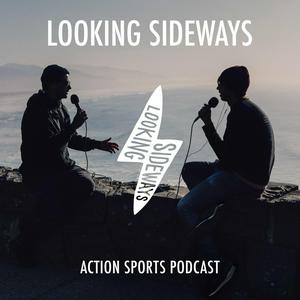
Ontvang de gratis radio.net app
- Zenders en podcasts om te bookmarken
- Streamen via Wi-Fi of Bluetooth
- Ondersteunt Carplay & Android Auto
- Veel andere app-functies
Ontvang de gratis radio.net app
- Zenders en podcasts om te bookmarken
- Streamen via Wi-Fi of Bluetooth
- Ondersteunt Carplay & Android Auto
- Veel andere app-functies


Looking Sideways Action Sports Podcast
Scan de code,
download de app,
luisteren.
download de app,
luisteren.





